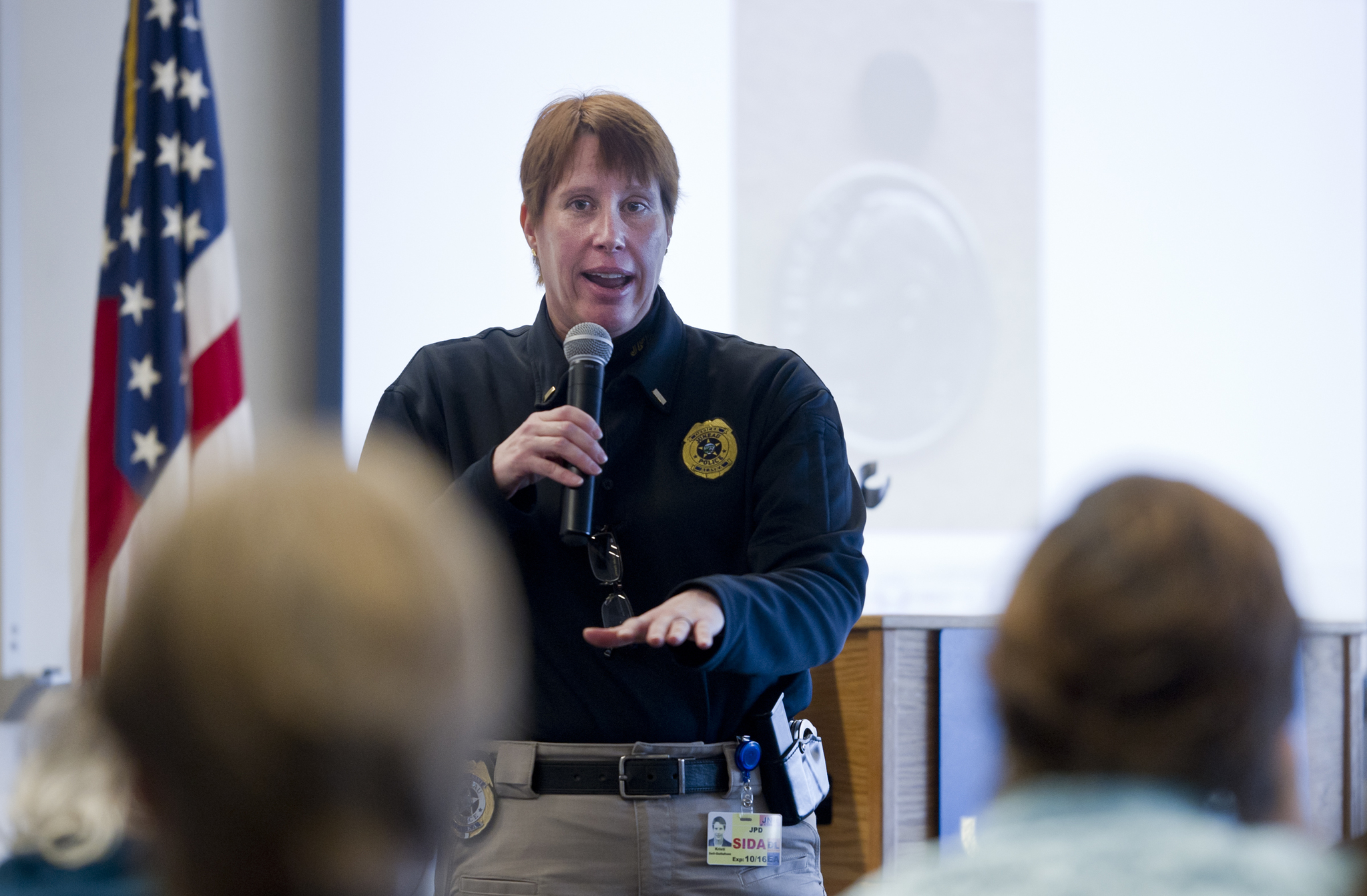Juneau Police Department Lt. Kris Sell has resigned her seat on the Alaska Criminal Justice Commission, a 13-member group created by the state Legislature in 2014 to address the rising number of Alaskans in prison.
Sell’s resignation comes as push-back from law enforcement and the public caused the commission to issue a set of recommended changes to Senate Bill 91 that were submitted to the Legislature on Jan. 30. The Criminal Justice Commission drafted the recommendations that eventually resulted in the passage of SB 91 in what has been called the biggest change to Alaska’s criminal justice system since statehood. Instead of tough-on-crime policies, SB 91 called for more crimes to be punishable by probation, electronic monitoring and alternatives to prison.
Sell declined to comment, but has been vocal in her advocacy for SB 91.
Juneau Police Chief Bryce Johnson called the resignation an internal issue and stressed that he has nothing but accolades for Sell’s work.
“Lt. Sell is an outstanding officer and she really serves the community well,” he said in a phone interview Thursday.
But Johnson alluded to his own position on SB 91 — as outlined in a town hall meeting he conducted on Jan. 17 — which is that while the bill has sound underlying principles, in reality some of its unintended consequences made policing Juneau very difficult.
“They have fixes they are working on right now,” Johnson said, citing sentencing for first-time Class C felonies as an example.
“It didn’t make sense that there was no jail option,” he said; one of the recommended changes is to enact a presumptive range of 0-90 days at a judge’s discretion.
Johnson also cited a proposed change that would allow for jail time for repeat fourth-degree theft offenders. Currently, there is no jail time for offenders who steal less than $250 worth of goods, leading criminals to exploit the law by repeatedly “loading up on $245 worth of stuff,” Johnson said. “There was no deterrent to that.”
Lt. Sell’s position on SB 91 “did not match the mainstream position in law enforcement, or what the Juneau Police Department felt,” Johnson added. “She was a very dedicated commissioner and she did a really great job. … She knew that what we were thinking and what she was thinking was a little bit different, and so she decided to resign.”
In 2015, during a speech to the Juneau Chamber of Commerce, she said the idea is to find the “sweet spot” where punishments are severe enough to deter crime, but not so severe that they leave offenders with no alternative but crime.
“As you run people through the criminal justice system, they become more dangerous,” Sell said at the time.
In a Jan. 25 meeting of the Senate Judiciary Committee, Sell noted that she did not speak for the Juneau Police Department, adding, “I came in thinking I would be tough on crime. … I wanted people who are hurting other people to be in jail. I sat through the first year of meetings with my arms crossed over my chest.”
But, Sell said, her participation on the commission made her confront her theories about how criminals behave, which included a belief that prison sentence time correlates to behavior change even though “not a lot of soul searching and epiphanies is happening in prison.”
Sell told the committee members that she had to start factoring in mental illness and drug addiction, a process she admitted was “not a lot of fun.”
“I had to come to a place in my own reasoning … where being tough on crime was actually just being tough on people and not treating the reasons they are committing more crime,” she said. “The underlying cause remains unaddressed.”
Sell said that she developed a “new vision” that as soon as someone got arrested, their reasons for committing the crime could be examined and they could be connected with services such as drug rehabilitation.
She acknowledged that budget crunches meant there was a gap between SB 91’s goals and implementation, adding, “Things aren’t in place yet. It’s a rough time.”
Sell, who was appointed to the commission by then-Gov. Sean Parnell in 2014, was the only Juneau resident on the commission and filled the slot reserved for a member of a municipal law enforcement agency. In 2016, she was named Citizen of the Year by the Juneau Chamber of Commerce and won JPD’s Jackie Renninger Community Policing Award for her dedication to building strong relationships between the police and the community. On March 4, she will be honored by AWARE as one of its Women of Distinction.
Chief Johnson maintained that the commission’s proposed changes were solid and that his department is committed to remaining engaged despite Sell’s resignation.
“We’ll keep trying to make it a better process, and I think it will all work out in the end,” he said.
Contact Empire reporter Liz Kellar at 523-2246 or liz.kellar@juneauempire.com.

